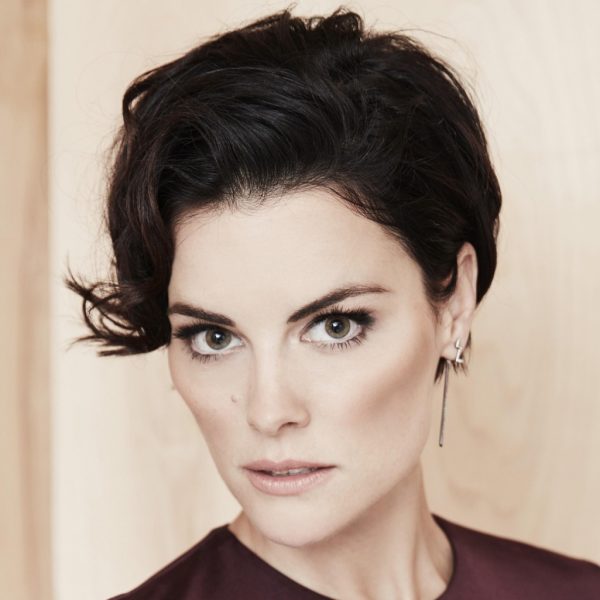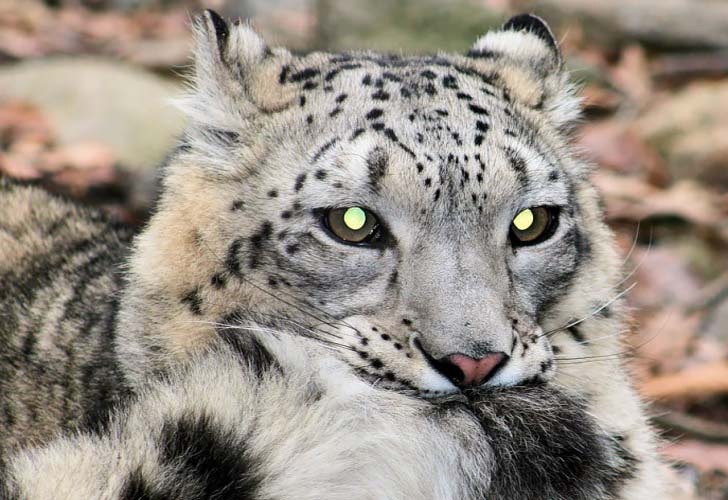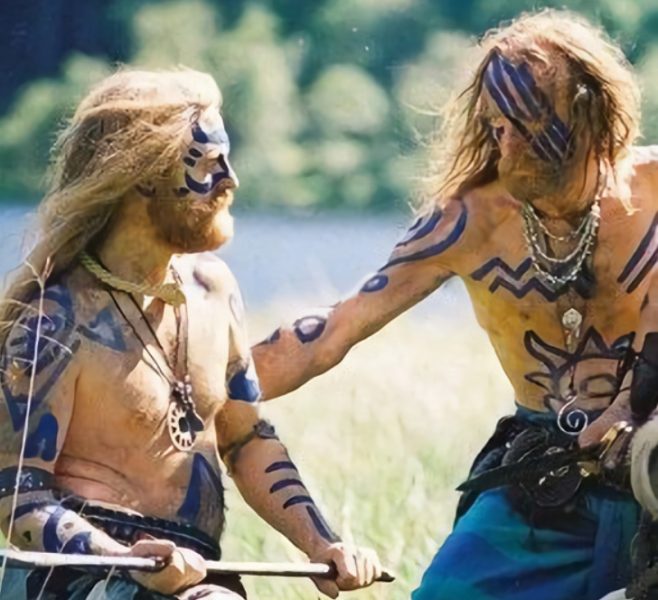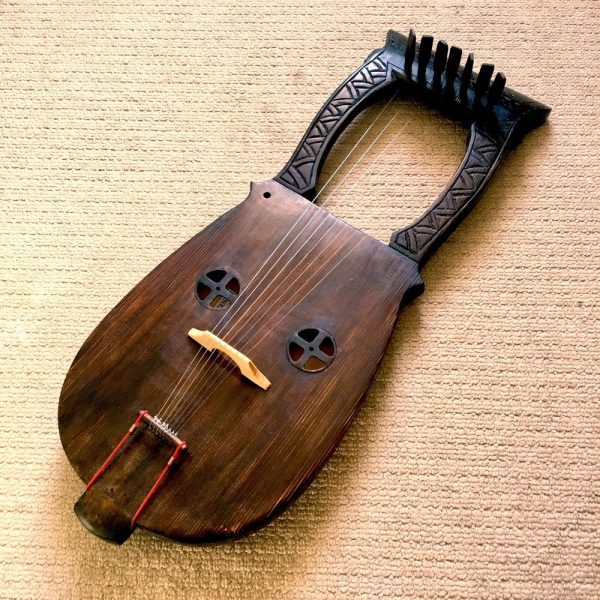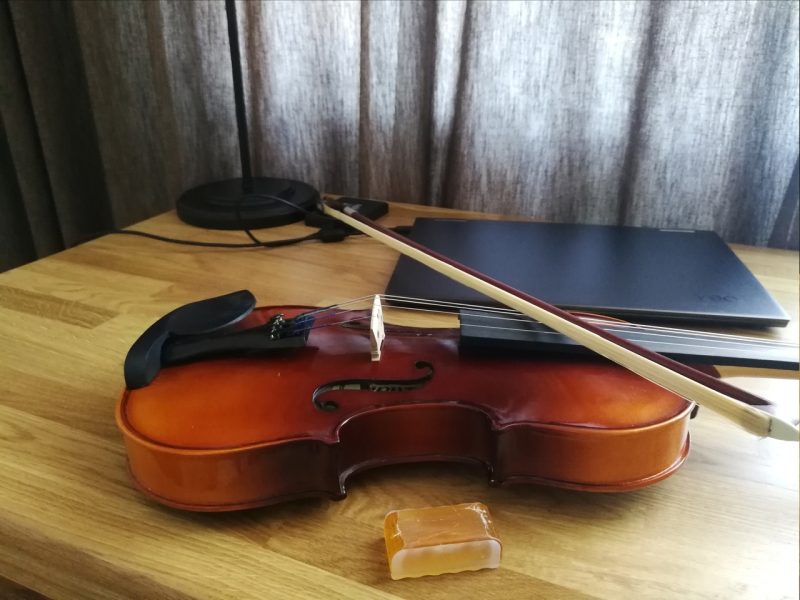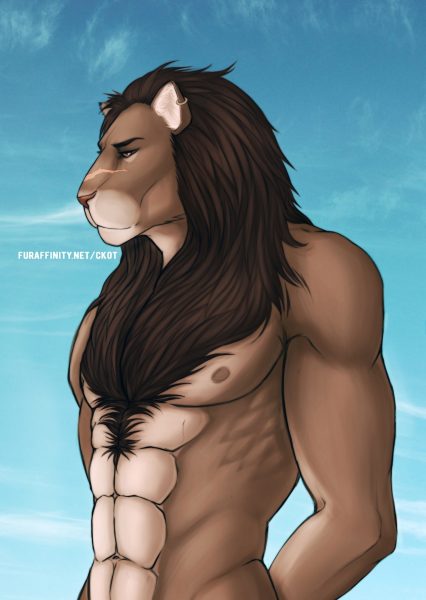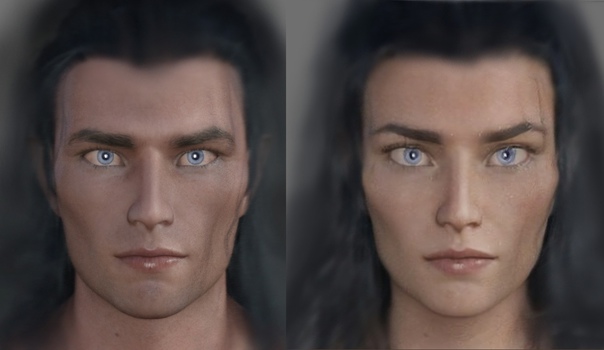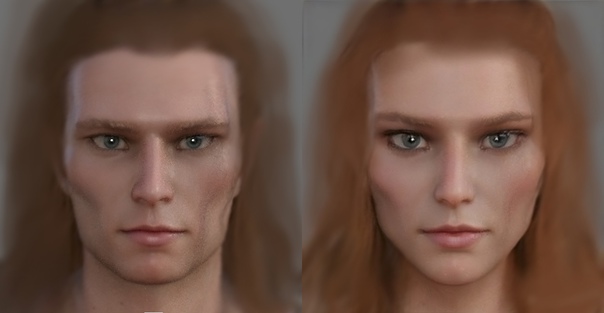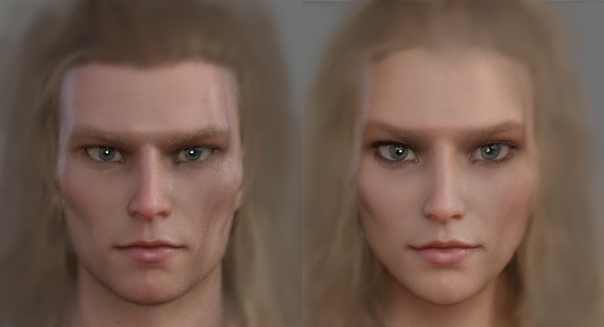For entertainment, listen to a well-known song in classical Skadin. The pronunciation is almost entirely authentic – and the arrangement delivers.
Ezil (pt. 2)
And now I’ll explain that this happened yesterday.
In 328 AD, a terrorist attack occurred in Elery (if anyone doesn’t remember, the largest port of the then Glinnar Dimonarchy), as a result of which almost all children from ten to twenty years old were killed (by Alvan standards, children, of course). Historical sources mention it very reluctantly, but this happened, most likely, as a result of the arson of the school in which these same children were then staying.
We found records of a woman whose daughter died in this fire. Only the first few sheets have been translated so far, but even they made such an impression on me that I couldn’t sleep the whole night before yesterday—and I couldn’t calm down until I finally wrote this text. And, believe me, in comparison with the feelings that she described, they are just flowers.
We are unlikely to ever know what both Ezil and her mother looked like - we can only assume that the mother’s face was similar to the girl in the photograph.
Ezil.
Context will come later.
Ezil.
When I return home, the first thing I see is the ticking of the pendulum. I try, I honestly try to close my eyes as tightly as possible - but for some reason they remain open. A measured knock dances in front of the pupils with bright metallic flashes and dissolves in the vessels on the eyelids. Very painful; I can't see anything else.
Ezil.
I can't sit down. My finely carved ebony chair is transformed every day into a rough-hewn bench of the grayest alder. She hurts me. It digs its sharp angles into my thighs and legs. I try to lie down - its fibers scratch my back, which has not completely healed.
I can not get up. The patterned floorboards, made of ash and beech, become a pile of boards every night, with a draft blowing from the cracks between them. They drive their splinters into the skin of my feet; I fall back and try to pull them out, but they go far into the very flesh. I'm already tired of enduring it.
Ezil, a mo vaouenn…
The day before yesterday I shaved my head. Her hair grows like a stiff stubble and pricks her fingers in a funny way. I begin to laugh fervently - and then suddenly fall silent: it seems to me that an persistent pendulum ringing has crept into my laughs. Sore throat. If I scratch my chest, can the laughter come out another way?
My spear stands against a bare wall. It's probably already completely overgrown with cobwebs. I don't want to look at him; I’m scared to take it in my hands - what if, when I touch my fingers, it will burst into flames with stinking fire? I'm afraid. I'm very afraid. I'm really scared. I don't want that much light.
Ezil, a mo vaouenn!
I'm actually not afraid of fire. It's warm and warm. Gently dissolves his fingers. Do you remember how your father once upon a time took whole handfuls of it and tossed it from palm to palm? Do you remember when he went to sea? It seems like quite recently, but it seems like even before I was born.
I broke the fireplace in our house. It's cold and damp at night, but I endure. I'm still awake. I never sleep anymore. I'm too old to sleep. You can lose yourself in a dream - I don’t want to. I'm afraid to lose. It hurts me when they take it away.
Ezil!
Yesterday I started going to the sea. It is gentle and smells like water. Such clean and bright water - and somewhere below, in the sand, fish swim. So small and funny - but for some reason I don’t laugh anymore. I just smile and wave my hand over the waves.
Ezil!
You know, I already stopped screaming when passing by that house. The fire from its blackened logs spreads to my eyebrows every time - but now it has become completely dim. It will soon be completely dismantled, and in its place there will be emptiness. And a slight smell of bone dust.
Ezil, my daughter...
I'll pick up the spear again in the morning. Let it burn with me - then I will be free. Let it stick tightly to my palms. Let me be remembered with arms in hand.
Ezil, my daughter! I promise you - tomorrow I will finally stop crying.
RESEARCHERS HAVE FOUND LINES THAT WILL CHANGE THE WORLD! CLICK TO...
(sorry, I just really wanted to write a clickbait headline)
In general, we really did find important information that very well confirms some scientific views on the culture and beliefs of the pre-Christian Rechans. It consists of a small inscription on a scrap of parchment, written from left to right in koiran - the historical alphabet of the Eryakhshar Jearts, which they are now persistently trying to bring back to life.
It looks like this (in romanization):
simo pistruyi reçānīnu yiz rodā ridā su ro~ (breaks off)
it is immediately obvious that this is a completely ordinary Proto-Rechan language, here it is in Klimentitsa:
very colorful river from the clan of the Rada s ro~
"here the Motley Riverman from the Rda s Ro~"
You can read more about Motley in a few posts earlier; but that's not even the point. It's worth paying attention to the words "from the ryda family". Why?
Firstly, this very “ryd” is the name of a certain animal. This word has been preserved in the north of Rechani (red, r.p. rda) and in some places dialectally according to Retsinia (red, r.p. rda) — and wherever it is still found, it specifically refers to the snow leopard (also known as the "snow leopard"). Etymologically, it goes back to the Proto-Orbis root *wreyd- "scratch, cut out", but that's secondary.
Now let's look at it from a different angle: historians knew in principle that the ancient Rechans, like the Svaiti and Germans, had certain animalistic beliefs - but this is a find of a completely different level! That is, we clearly see that:
a) at that time the clan-tribal system still continued to exist;
b) at least one such clan had a very obvious totem animal.
It's very, very interesting what kind of relationship these guys had with snow leopards/snow leopards in general, but unfortunately we don't know that yet. If we find out anything, we'll definitely let you know!
Homosexuality among ancient peoples
A slightly strange post on a topical topic that will be (not) useful to all of you. I will talk about homosexuality among the ancient peoples - for now the human ones who lived in Orov: some time ago I had to seriously investigate this issue. Better not ask why.
What prompted me to write this post is that it is difficult to find any more or less intelligible information on this topic: people in general are divided into two camps, and one screams that there could be no homosexuality, because it’s not like a man and from Satan, and the latter, no less zealously, push something about freedom of morals and gay orgies after breakfast.
If this topic bothers you in any way, please do not read further.
- ancient Hellenes: well, everyone already knows this, it seems. Morals varied depending on the policy, but in general it was considered absolutely normal for an adult man to “look after” a male teenager; For an adult free citizen, being a host was still considered unworthy.
- ancient novels: no, they were far from supporters of such eccentricities. That's it. This was also due to the fact that all this was not like a man for a free citizen, but even active homosexuals did not enjoy approval. During the Empire, the attitude changed a little, but in general it also remained somehow meh.
- ancient betas: here you, gentlemen, slashers, have a whole expanse. Some people, and their men, had two or three lovers, with whom they, according to Diodorus, “...slept right on the ground on animal skins, rolling around with the lovers who are with both sides." It is quite likely that this is somehow connected with fraternization rituals, but still.
- Germans: everything is fun here too. It is known that at least the Westerners had initiation rituals associated with, uh, intercourse among young men. With the Vikings, everything is not very clear, since there is somehow no pre-Christian information about this, and later ones speak about this matter not very positively. But, IMHO, since they began to respond only later, this may mean that such things were not particularly condemned before.
- recane: unknown. Yes, completely unknown. You can come up with whatever you want, but the fact remains: none of the ancient historians wrote anything about this. Perhaps some Rechan monks openly condemn the licentiousness of sexual morals (this is somewhere in the 12th century, if memory serves), but by this they can mean anything at all.
- svayts: see above - even less is known about them than about rivers.
I do not mention homosexuality among women for the most banal reason: historians have written practically nothing about it. Only the Hellenes had some information left, but still very little.
But in general it all looks something like this; if the post suits you, then I’ll tell you about the elves, and the dvergs, and the dzherts; both to the east, and to the south, and in general about everyone about whom there remains sane historical information.
Dróttkvæði
Finally something interesting!
A musical instrument was discovered, in appearance it was a lyre, very similar to the Rugin folk instrument (see attached photo). On its reverse side there is a runic text carved in the younger futhark, which looks like this:
ᚦᛁᚴᛅᛦ ᛁ ᚱᛁᚴᚾᛋ ᚦᛅᚴᚢ
ᚦᛅᚢᛏᛅ ᛁᛋᛅᛦ ᛋᚴᛅᚢᛏᛁ
ᛋᚴᛅᛒᛋ ᛒᛚᚬᚦᛋᚾᛅᚴᛅ ᛒᚬᚦᚬᚱᚦ
ᛒᛁᚱᛅ ᚼᛅᚱᛘᛁᚾ ᚢᛁᚱᛅ
ᚱᛆᛁᚦᛋᛏᚬᚱᛘᛦ ᛒᚱᛆᚾᛁᛦ ᛒᚱᛁᛘᛅ
ᛒᚱᛆᛁᚦᛁᛦ ᚼᛅᚾ ᚭ ᛚᛆᛁᚦᛁ
ᛋᛅᛚ ᛁᛦ ᚴᛆᛁᛋᛚᛅᛋᚬᛚᛅᛦ
ᛋᛆᚾᛏᛁᚾᚴ ᚦᚢ ᛘᚢᚾᛏ ᛒᛆᚾᛏᛅ
In normalized Romance orthography:
þegaʀ í regns þǫ́gu
þeyta ísaʀ skeyti
skaps bloóðsnáka boðorð
bera harmin(n) vera
reiðstormʀ bręnniʀ bríma
breiðiʀ han(n) á leiði
sál eʀ geislasólaʀ
sęnding þú munt bęnda
Judging by the structure, this is what is called drottkvatt is an ancient Ruginian poetic form characterized by incredible complexity, interlocking sentences and an eerie combination of alliteration and internal rhymes. Moreover, there are so many poetic synonyms and epithets that sometimes it is completely impossible to understand what the author meant. We ourselves were only able to figure out some of them, we are waiting for an answer from specialists regarding everything else.
When there is a quarrel in the rain (=thunderstorm?)
Ice fights with rods
spirit (=courage? bravery?) of husbands,
and serpents of blood (=swords, metonymy for “warrior”) orders bring grief,
a storm of wrath (=battle) lights the fires,
takes them to their graves
(after all, the soul is the sun’s rays (????) message),
you will give a sign.
It is difficult for us to even imagine what the “sun of rays” is; even if we assume that “ray” is just another metonymy for “fire,” it doesn’t get any better.
Due to some spelling features (the use of ᛅ for a, b; ᛆ for ę and in the diphthong ᛆᛁ), with good accuracy we can assume that this is early (3-5 centuries AD) Western Proto-Ruginian. It is difficult to guess, but it is very likely that the sword we found earlier is somehow connected with this lyre and the verse on it.
Violin
In the photo you can see what my biggest current hobby looks like, not related to writing or anything like that.
In fact, I even regret a little that my parents didn’t send me to a music school as a child - although I don’t know, maybe it was for the better. But around the age of thirteen, my father began to convince me that playing the guitar was a very good idea (perhaps all for the sake of picking up girls - I won’t say for sure). I studied classical guitar with a classical guitar teacher for some time; after a couple of years, having received some kind of base, he gave up and began to independently learn to yell tunelessly to the sad strumming. Now I've returned to the classics, but that's a completely different story.
And I bought this violin in June of 1914, after I graduated from school. Yes, yes, I know: the instrument is of absolutely no quality, and it is very close to receiving the proud title of “object in the shape of a violin.” Why then I bought this thing, I have absolutely no idea; besides, I couldn’t really play it at home, because I would get hit in the face by all the neighbors at once.
But time has passed, and now I am outside the city - which means I can only disturb the guys living with me in this very house. Berenice was a little sad at first, but then reconciled herself; the rest sometimes cast meaningfully ferocious glances, but I prefer to believe that they are trying to express their admiration in this way. (Guys, I'm really sorry to subject you to this torture, but I can't help it)
I study on my own, consult with the tuner, various tutorials and vedos (including TwoSetViolin, Yes). I'm sure I make a ton of mistakes, but so far it doesn't matter to me. The main thing is music!
Kayt
In the meantime, they drew me a very, very suitable image of Kite. I'm terribly happy and inspired to continue writing =D
Ailein Duinn
So far we have no new particularly interesting finds, but some guys from Ruginia have contacted us - perhaps they have something interesting regarding our mission. In the meantime, I will do a short analysis of one Kiyatland song from a historical and cultural point of view.
It's called Ailein Duinn (“Dark-haired Alan”) and is nothing more than a lament for the untimely death of a beloved. It was composed in 1788 by a girl named Anna Campbell for her fiancé, Alan Moresdan, who died at sea in a shipwreck - ironically, while on his way to his own wedding. Annag wrote this lament, and then lost all will to live, and a few months later her body was found on the shore - not far from the place where the waves carried Alan’s body.
The song itself is very sad, you can find its translation, but I want to draw your attention to the last two lines:
Dh'òlainn deoch ge b' oil le càch e
De dh'fhuil do chuim 's tu 'n dèidh do bhathadh
“I would drink, despite others,
Blood from your chest (=heart) after you drowned.”
There is a very, very interesting image here, and I will try to explain it to the best of my understanding. The Betas once had a custom of drinking the blood of defeated enemies (or dead relatives) in order to adopt their valor. But the point here is that Annag was neither Alan’s blood relative, nor even his wife - they could not get married. That is why she sings: “despite others” - without fear of public censure, she is ready to perform an ancient ritual with Alan as someone who was very close to her.
And finally, a very beautiful rendition of this song.
Alva anthropology
And now a little anthropology.
The Glinnar Alvs have two main ethnic groups, and this is a fairly well-known fact:
- coastal, with black hair, gray or blue eyes, dark skin and a wide lower jaw;
- Mainland, with hair of various shades of light brown, eyes from blue to green and brown, a shorter nose, a narrow lower jaw and slanted eyes.
But the mainland ethnic group is divided into two more, and this fact is much less known. I won’t describe the differences between them, look at the photos; The most interesting thing is that there is even a slight dialect difference between them.
Some of them, apparently, never used inflected verb forms (blaha-w, dar-im, blaha-et etc.), instead they had agglutinative (blaha-i, dar-i, blaha-nei-dh), which were subsequently supplemented by analytical (seam blaha, seam dar, …). The second ones had inflectional ones, which later were forced out analytical.
Well, even among the former, the negation of the verb is not on the left, but on the right, and often merges with it.
Well, here are some photos: coastal ethnicity, mainland number one and mainland number two. These are averaged options collected from a fairly large sample - as you can see, they still differ from each other, not to say very much.

